Oct 28, 2025 10:47 AM
In Memoriam: Jack DeJohnette, 1942–2025
Jack DeJohnette, a bold and resourceful drummer and NEA Jazz Master who forged a unique vocabulary on the kit over his…
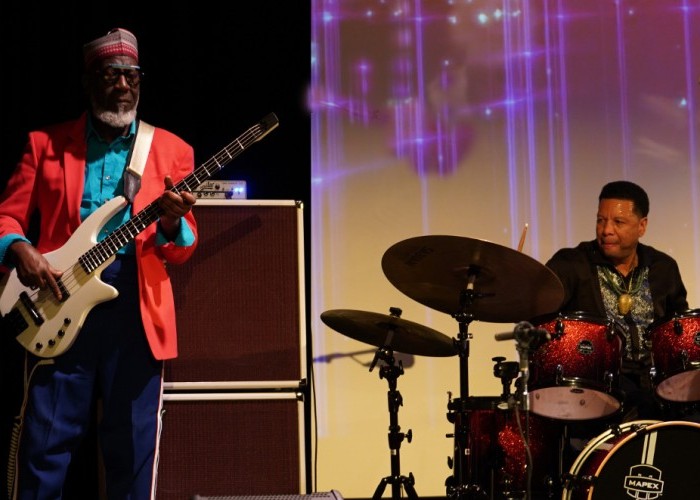
Jamaaladeen Tacuma (left) and Denardo Coleman perform April 29 at the Outsiders Improvised and Creative Music Festival in Philadelphia.
(Photo: Sound Evidence)The final show of electric bassist Jamaaladeen Tacuma’s fourth annual Outsiders Improvised and Creative Music Festival reveled in the roots and revolution of Ornette Coleman’s “harmolodics,” a radical retake on the interplay of harmony, motion and melody.
At the University of Pennsylvania’s International House in Philadelphia on April 29, an intense solo performance by guitarist and vocalist James Blood Ulmer; a high-energy rave up by Prime Time, Coleman’s amplified ensemble now led by his son, heir and drummer since age 10, Denardo Coleman; and an exploratory set introducing the Brooklyn-based quartet Secret Mall proved that three years after Ornette’s death, his concepts still have an edge, prompting players to express their individuality unimpeded by stale musical conventions.
Such music might be a shock to its listeners, an unintelligible cacophony, or exciting, sonic bliss. However, blues of feeling, if not form, always grounded harmolodics, which in the ’60s and ’70s was promoted as “free jazz,” and around 2005 was re-named “sound grammar.” Ulmer, who on his 1978 debut album Tales Of Captain Black was backed by Coleman pere et fils and also Tacuma, has over the course of his career increasingly sounded like an avatar of primitive Americana strains. Using his thumb to strum a ringing drone under the modal figures he plucked, and singing with a quaver that bespoke empathy, pain, determination and wonderment throughout his songs, Ulmer took the music to its emotional fundamentals, the sources that made exact tunings and strict time signatures irrelevant to artists like Bukka White, John Lee Hooker and Lightnin’ Hopkins.
Prime Time’s power, amassed through collective improvisation and sheer volume, also seemed basic, though more challenging due to the amount of information abstracted and then packed into each of the six Ornette Coleman compositions put forward. Each began with tuneful riffs, syncopated across the ensembles’ orchestration, becoming increasingly complex, as well as compounded, when the instrumentalists took off in their seemingly separate directions. Yet, as they sustained implicit, collaborative connections to each other, the band consistently came to satisfying, surprising conclusions, stopping together on a dime.
This was a rare Prime Time outing; it was last reunited for a Coleman retrospective at New York’s Lincoln Center in July 2017. The Outsiders fest was the first occasion for guitarist Charlie Ellerbee and drummer G. Calvin Weston, of the band the elder Coleman led from the mid 1970s into the ’90s, to engage with guitarist Kenny Wessel and keyboardist Dave Bryant, who’d affected Prime Time’s sound starting with its 1996 album Tone Dialing. Odean Pope, dean of Philadelphia saxophone modernists and leader of his own nine-horns-plus-rhythm-section Saxophone Choir, took Ornette’s place in Prime Time, blowing heroically from the center of a whirlwind of cross-current conversations.
Denardo’s fast, slippery beats and cymbal splashes contrasted with Weston’s steady, hard hits across his large trap kit. Tacuma boldly proposed bottom-shifting counterpoint, while above him Wessel and Ellerbeee meshed all but inseparably. Bryant added chords or fills where there was not obviously space for them, and reasserted themes when they’d nearly been abandoned. Pope’s melody lines had soulful weight, but nuances of what in other surroundings might have been solos were hard to discern amid the busy ensemble.
Secret Mall ended the program and the fest, which in previous concerts (all curated by and featuring Tacuma) had presented Free Form Funky Freqs with guitarist Vernon Reid, Sirius Juju led by Sun Ra Arkestra member Heru Shabaka Ra and a quartet including Nels Cline on guitar and drummer Chad Taylor.
Guitarist Edward Gavitt led Secret Mall, with reedist Alfredo Colon (using an EWI for its extended range and harmonizing effects), bassist Steve Williams and Denardo-influenced drummer Andres Valbuena. Their music was more transparent than Prime Time’s, but similarly exploratory. Perhaps that’s the unifying factor among outsiders, improvisers and creative musicians: an unceasing curiosity about how to be uniquely fresh and meaningful at every event, perhaps prompting all involved—audience included—to dig into what music truly is about. DB
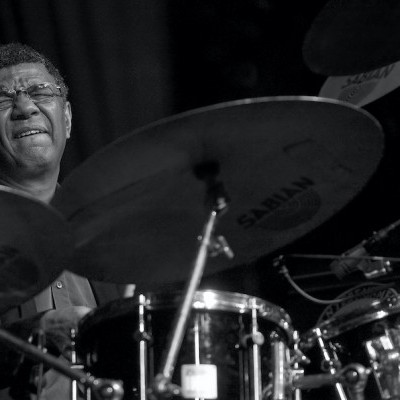
Jack DeJohnette boasted a musical resume that was as long as it was fearsome.
Oct 28, 2025 10:47 AM
Jack DeJohnette, a bold and resourceful drummer and NEA Jazz Master who forged a unique vocabulary on the kit over his…
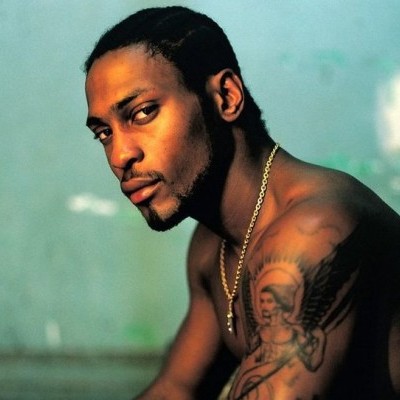
D’Angelo achieved commercial and critical success experimenting with a fusion of jazz, funk, soul, R&B and hip-hop.
Oct 14, 2025 1:47 PM
D’Angelo, a Grammy-winning R&B and neo-soul singer, guitarist and pianist who exerted a profound influence on 21st…
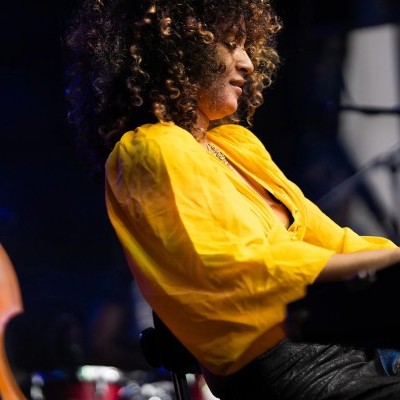
Kandace Springs channeled Shirley Horn’s deliberate phrasing and sublime self-accompaniment during her set at this year’s Pittsburgh International Jazz Festival.
Sep 30, 2025 12:28 PM
Janis Burley, the Pittsburgh International Jazz Festival’s founder and artistic director, did not, as might be…
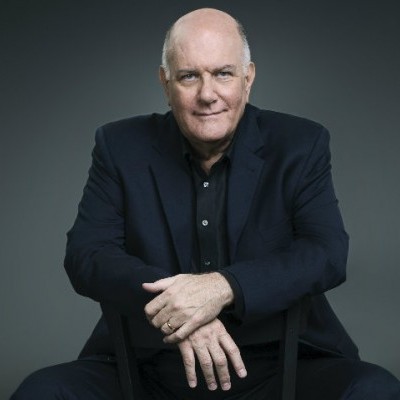
Jim McNeely’s singular body of work had a profound and lasting influence on many of today’s top jazz composers in the U.S. and in Europe.
Oct 7, 2025 3:40 PM
Pianist Jim McNeely, one of the most distinguished large ensemble jazz composers of his generation, died Sept. 26 at…
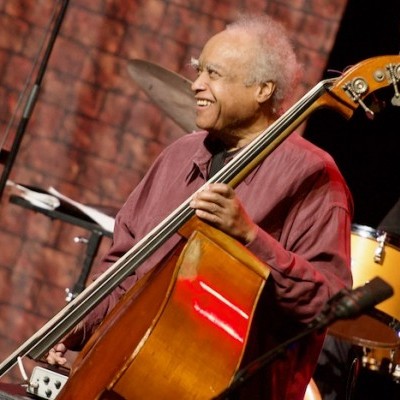
Drummond was cherished by generations of mainstream jazz listeners and bandleaders for his authoritative tonal presence, a defining quality of his style most apparent when he played his instrument unamplified.
Nov 4, 2025 11:39 AM
Ray Drummond, a first-call bassist who appeared on hundreds of albums as a sideman for some of the top names in jazz…